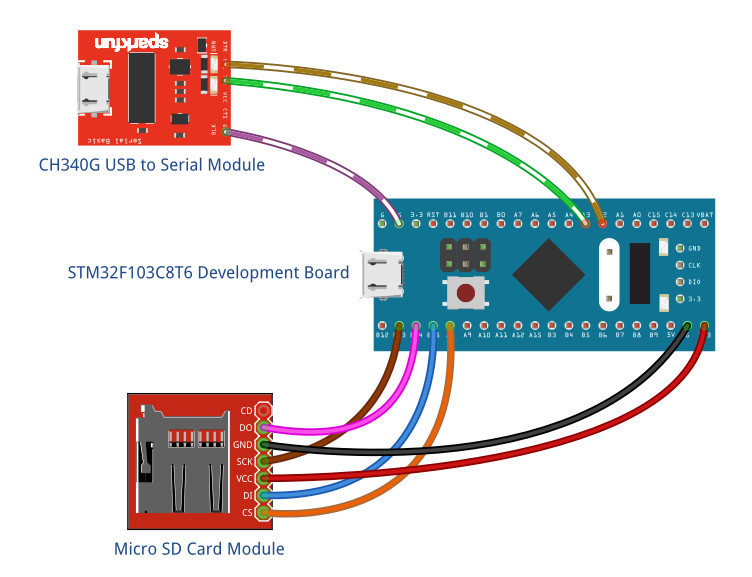OpenFAT is an open-source FAT file system implementation for embedded systems. The original library is well written and documented. We recently came across this library while looking for a LibOpenCM3 support SD/MMC FAT file system library. At the initial review, we notice that this library does not maintain for the last ten years. Also, it does not provide support to the latest SD card types.
After review the latest SD card specifications, we add SD card support to this library and release it with the same license. The updated library is available at the github.com/dilshan/sdfatlib.
The testing of this library is carry on a popular STM32F103C8T6 blue pill development board. The suggested wiring layout is given, below.
 |
| Wiring layout for the test setup. |
For the above test layout, we use a standard SD card adapter module (which comes without a built-in level-shifter and voltage regulator). Due to the 3.3V support of the STM32F103C8T6, the wiring layout is straightforward. The CH340 UART to USB converter is an optional module and is used to monitor the debug logs generated by the library. In the default configuration, the debug logs are disabled in the Make file. To enable the debug logs, compile and build the test application with the DEBUG_LOG preprocessor option.
The SD card driver implements on top of the latest version of the LibOpenCM3 library. In the default configuration, the SD card driver uses the SPI2 peripheral of the MCU for SD card interfacing. The PORTA-pin 8 is used to issue the chip-select (CS) signal.
This release contains all the OpenFAT functions provided in the original release. The test application is also base on the example provide with the OpenFAT library.
This library release under the terms of the GNU GPL version 3 license.
Comments